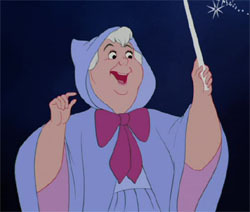
DO RE MI FA SO LA TI- The most famous musical alphabet of Western Classical Music. 7 unique, simple notes that span across countless centuries and tell the story of musical evolution throughout ageless generations. For those who keep musicals and classics in their hearts, or have simply allowed their ears to indulge in the cornerstone musical pieces of pop culture, the Do Re Mi sequence has been spotlighted in golden classics from Julie Andrews’ Sound of Music Soundtrack to the Jackson 5’s ABC. Now travel all the way to the other side of the world, to a land of unique cultural vibrance and musical traditions, and sit in on a private singing lesson of a young protégé living with his mentor as a dedicated disciple of Hindustani Classical training (this is also known as a Guru-Shishya relationship). As in the early oral traditions of Hinduism, the Guru (spiritual teacher of music) takes on the responsibilities of his Shishya (disciple) and the progress of his musical growth and training by keeping the student in his home and privately training him in singing Hindustani music. Vocal Training is regarded as sacred and spiritual when practiced in its most traditional, orthodox methods. The mantra of Hindustani vocal training is comprised of numerous ragas, equivalent to the concept of scales. The notes of these ragas are spelled out as SA RE GA MA PA DA NI, the foundation of Hindustani Classical singing lessons.
IN C MAJOR:
DO=C=SA
RE=D=RE
MI=E=GA
FA=F=MA
SO=G=PA
LA=A=DA
TI=B=NI
DO=C=SA
Now, if anyone has taken private singing lessons in Western Classical Music, learning the Do Re Mi vocal exercises are the foundational practices for any singer, no matter what their skill sets are. Do Re Mi comprises of a full, 8 note scale. The base scale usually starts off in the C major scale, and can eventually shift in key signature when testing the waters during a singing lesson, depending on the vocal range of the individual. The bridge that connects Western Classical Music and Hindustani Classical Music in their roots alone are that the base Western Scale and the Hindustani Raga note sequences are ONE AND THE SAME. When learning Do Re Mi Fa So La Ti Do in C major, you are also learning the main raga of the Hindustani Classical sequence Sa Re Ga Ma Pa Dha Ni Sa. Of course, there are hundreds more ragas that are far more complex, mastered through extensive training, but the Scales of Western Classical Music and Hindustani Classical Ragas, though flow in separately, follow similar courses and eventually travel into the same language of music. Music is very much like an ocean- it is gargantuan in size and depth on its own, but its origin was formed through many channels from the earth and will forever connect to many parts of the world.

Performing on stage is both the most invigorating and nerve-wrecking experience for people, no matter how how professional they are. There are so many uncontrollable factors at play, from changes in setting to minor accidents. One thing performers can control is the instrument they perform with. There are many ways to maintain the quality of instruments, from regular warm-ups to handling the instrument with care. The vocal instrument, however, is a beast of its own. It’s directly impacted by bodily changes, especially if singers and vocalists have allergies or fall sick. The most popular, known ailments to nourish and nurture the vocal chords are of course hot tea, soup, or water with lemon and/or honey. However, studies suggest that certain juices can eliminate any mucus or”junk” that builds up in singers’ throats caused commonly by weather and viruses. Cranberry juice, for example, is an extremely helpful to drink before a show. It breaks down overactive mucus and whatever vocal build-up that occurs. The molecular structure breaks down a significant amount of mucus as opposed to water simply thinning it. So, next time you craving a delicious drink before a show but don’t want to jeopardize your voice, know that you have a delicious, healthy and safe option to soothe your vocal chords and taste buds!

Imagine the technique, and it becomes a reality!
Of course, it’s never that simple, but if you’re a singer who’s well-trained in foundational best vocal practices, you don’t need to practice out loud as often as you think.
We all know the saying “practice makes perfect”, but studies have shown that singers don’t need to rely on consistent practice to achieve the vocal quality they need. Certain parts of the brain are overactive according to the skills necessary to sing and perform. These skills are stored in certain areas of the mind, and simply imagining them triggers the brain to summon the necessary muscles for the performances that singers need, and want them to be.
Three areas of the brain that work and store information:
Primary motor cortex, which is responsible for telling the muscles in the body what to do, such as the how the mouth should be positioned, how relaxed the throat muscles, tongue and neck should be, and body posture in order to have full and non-constricting vocals.
The dorsolateral prefrontal cortex stores and administers memory. Singers multitask all the time when they perform. One performance alone requires at least 10 different simultaneous action to occur on stage. To name a few, remembering the lyrics,melody, musical breaks, appropriate emotions, posture, expressions, movement, eye contact, breathing spots, cues with the accompanist, and the list goes on. They have to be the director, actor, producer in one body. The dorsolateral prefrontal cortex also permanently stores these techniques as mandatory actions that need to be conducted in order for the performance to be successfully carried out.
Inferior parietal cortex allows people to analyze their surroundings with mapped out spatial information to create appropriate coordination.
Singing Lessons New Jersey can provide you and your family with all the necessary tools and practice methods to ingrain a singer’s resources in your mind. Once you have them, there’s no stopping you, or your show from being the greatest it can be!
